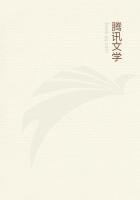Last night, having written what you have just read about the benefits of fairy literature, I bethought me to renew my acquaintance with some of those tales which so often have delighted and solaced me. So I piled at least twenty chosen volumes on the table at the head of my bed, and I daresay it was nigh daylight when I fell asleep. I began my entertainment with several pages from Keightley's ``Fairy Mythology,'' and followed it up with random bits from Crofton Croker's ``Traditions of the South of Ireland,'' Mrs. Carey's ``Legends of the French Provinces,'' Andrew Lang's Green, Blue and Red fairy books, Laboulaye's ``Last Fairy Tales,'' Hauff's ``The Inn in the Spessart,'' Julia Goddard's ``Golden Weathercock,'' Frere's ``Eastern Fairy Legends,'' Asbjornsen's ``Folk Tales,'' Susan Pindar's ``Midsummer Fays,'' Nisbit Bain's ``Cossack Fairy Tales,'' etc., etc.
I fell asleep with a copy of Villamaria's fairy stories in my hands, and I had a delightful dream wherein, under the protection and guidance of my fairy godmother, I undertook the rescue of a beautiful princess who had been enchanted by a cruel witch and was kept in prison by the witch's son, a hideous ogre with seven heads, whose companions were four equally hideous dragons.
This undertaking in which I was engaged involved a period of five years, but time is of precious little consideration to one when he is dreaming of exploits achieved in behalf of a beautiful princess. My fairy godmother (she wore a mob-cap and was hunchbacked) took good care of me, and conducted me safely through all my encounters with demons, giants, dragons, witches, serpents, hippogriffins, ogres, etc.; and I had just rescued the princess and broken the spell which bound her, and we were about to ``live in peace to the end of our lives,'' when I awoke to find it was all a dream, and that the gas- light over my bed had been blazing away during the entire period of my five-year war for the delectable maiden.
This incident gives me an opportunity to say that observation has convinced me that all good and true book-lovers practise the pleasing and improving avocation of reading in bed. Indeed, Ifully believe with Judge Methuen that no book can be appreciated until it has been slept with and dreamed over. You recall, perhaps, that eloquent passage in his noble defence of the poet Archias, wherein Cicero (not Kikero) refers to his own pursuit of literary studies: ``Haec studia adolescentiam alunt, senectutem oblectant; secundas res ornant, adversis perfugium ac solatium praebent; delectant domi, non impediunt foris; PERNOCTANTnobiscum, peregrinantur, rusticantur!''
By the gods! you spoke tally, friend Cicero; for it is indeed so, that these pursuits nourish our earlier and delight our later years, dignifying the minor details of life and affording a perennial refuge and solace; at home they please us and in no vocation elsewhere do they embarrass us; they are with us by night, they go with us upon our travels, and even upon our retirement into the country do they accompany us!
I have italicized pernoctant because it is that word which demonstrates beyond all possibility of doubt that Cicero made a practice of reading in bed. Why, I can almost see him now, propped up in his couch, unrolling scroll after scroll of his favorite literature, and enjoying it mightily, too, which enjoyment is interrupted now and then by the occasion which the noble reader takes to mutter maledictions upon the slave who has let the lamp run low of oil or has neglected to trim the wick.
``Peregrinantur?'' Indeed, they do share our peregrinations, these literary pursuits do. If Thomas Hearne (of blessed memory!) were alive to-day he would tell us that he used always to take a book along with him whenever he went walking, and was wont to read it as he strolled along. On several occasions (as he tells us in his diary) he became so absorbed in his reading that he missed his way and darkness came upon him before he knew it.
I have always wondered why book-lovers have not had more to say of Hearne, for assuredly he was as glorious a collector as ever felt the divine fire glow within him. His character is exemplified in this prayer, which is preserved among other papers of his in the Bodleian Library:
``O most gracious and merciful Lord God, wonderful is Thy providence. I return all possible thanks to Thee for the care Thou hast always taken of me. I continually meet with most signal instances of this Thy providence, and one act yesterday, when I unexpectedly met with three old MSS., for which, in a particular manner, I return my thanks, beseeching Thee to continue the same protection to me, a poor, helpless sinner,'' etc.
Another prayer of Hearne's, illustrative of his faith in dependence upon Divine counsel, was made at the time Hearne was importuned by Dr. Bray, commissary to my Lord Bishop of London, ``to go to Mary- Land'' in the character of a missionary. ``OLord God, Heavenly Father, look down upon me with pity,'' cries this pious soul, ``and be pleased to be my guide, now I am importuned to leave the place where I have been educated in the university. And of Thy great goodness I humbly desire Thee to signify to me what is most proper for me to do in this affair.''















